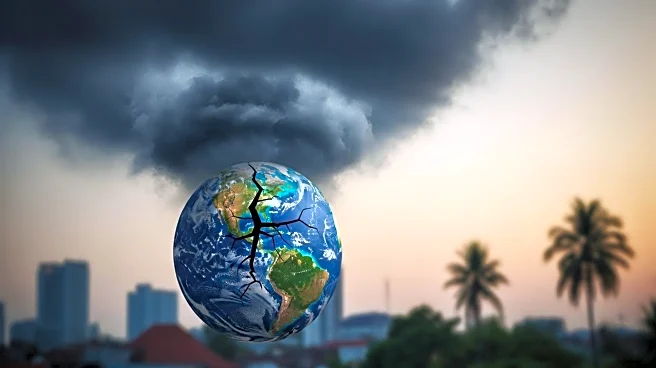What is the story about?
What's Happening?
Protests have erupted across Indonesia following the death of a delivery rider allegedly run over by a police armored vehicle. Demonstrators in multiple cities, including Jakarta, Surabaya, and Bandung, have clashed with riot police, leading to the use of tear gas and water cannons. The unrest was triggered by public anger over lawmakers' allowances, which are perceived as excessive. The incident has intensified scrutiny of police actions and raised questions about accountability and governance.
Why It's Important?
The protests reflect widespread dissatisfaction with Indonesia's political and economic conditions, particularly regarding lawmakers' compensation amid rising living costs. The incident has galvanized public sentiment against perceived corruption and inequality, potentially influencing future political reforms. The government's response to the protests and the handling of the police involved will be crucial in shaping public trust and stability. The situation highlights the challenges faced by the administration in balancing governance and public demands.
What's Next?
President Prabowo Subianto has called for calm and announced an investigation into the incident, signaling potential accountability measures. The protests are likely to persist as public anger remains high, with possible implications for political stability and reform. Authorities may face increased pressure to address the grievances and reconsider lawmakers' allowances. The situation could lead to broader discussions on governance and public policy in Indonesia, with potential impacts on future elections and political dynamics.
Beyond the Headlines
The protests have sparked a broader debate on governance and accountability in Indonesia, with implications for civil society and political engagement. The incident may prompt discussions on police conduct and the role of security forces in maintaining public order. The cultural and social dimensions of the protests, including the involvement of rights activists and politicians, add complexity to the political discourse and may influence societal attitudes towards governance and civic participation.
















